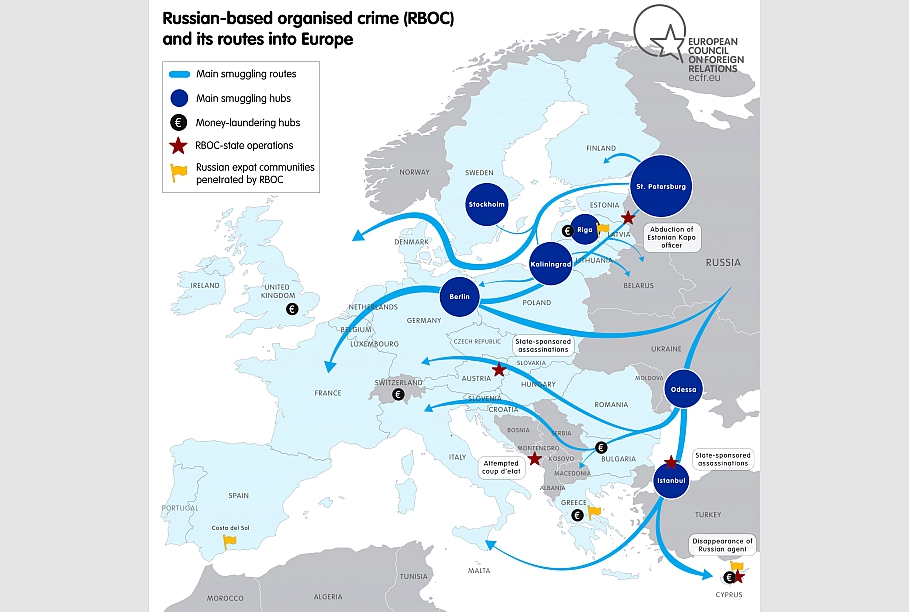The report titled Crimintern: How The Kremlin Uses Russia's Criminal Netowrks In Europe by Mark Galeotti goes into some detail on the marriage of convenience between Russia's rulers and major criminal groups.
There is "growing evidence of connections between such criminal networks and the Kremlin’s state security apparatus," the report says, warning that "Organised crime groups have already been used by the Kremlin as instruments of intelligence activity and political influence and are likely to become an even greater problem as Russian’s campaign to undermine Western unity and effectiveness continues. It is crucial that European countries and the European Union as a whole develop sharper and more effective responses to the threat."
Along the way, Riga receives the dubious distinction of being identified as a smuggling hub and a money-laundering hub as well as having a Russian expatriate population infiltrated by organized crime groups.
The Kremlin has used Russian-based organised crime groups in Europe for a variety of purposes https://t.co/74pqH6ZXJd pic.twitter.com/302pXAfqSP
— ECFR (@ecfr) April 18, 2017
The report is published by the European Council On Foreign Relations.
"From Spain’s Costa del Sol to Cyprus, or the Russophone population of Riga, a particular concentration of expatriate Russians, Georgians, or other such nationalities, necessarily creates an environment conducive to (their) criminal activities," the report says.
"The border is also used for smuggling illicit goods into Russia, either by land or through cargo shipping connections between St Petersburg and Nordic and Baltic posts – especially Stockholm and Riga."
While Latvia is by no means alone in having links with Russian organized crime networks, it is unusual in that practically all aspects of criminality are represented rather than one or two specializations.
"Unless crime is paying, criminals aren’t playing. One of the ways in which RBOC can assist Russian active measures is by providing sources of ‘black cash’. As a result, it becomes doubly important to target the capacity of RBOC structures to launder, move, and cache their funds," Galeotti emphasizes.
"Countries where money from Russia has a significant presence in their financial sectors need to address this all the more assiduously. This is especially the case for countries such as Latvia and Cyprus, which have already acquired a reputation for being the favoured money-laundering hubs for RBOC," he says.
There are some words of praise too, for efforts made by Latvian law enforcement to communicate with the local Russian community:
"The drive to build cooperative relationships between locals and intelligence officers in these communities needs to be reinvigorated. The experiences of countries such as Latvia and Estonia, which have had particular success in these endeavours, are worthy of study by others."
You can read the full report HERE.





























